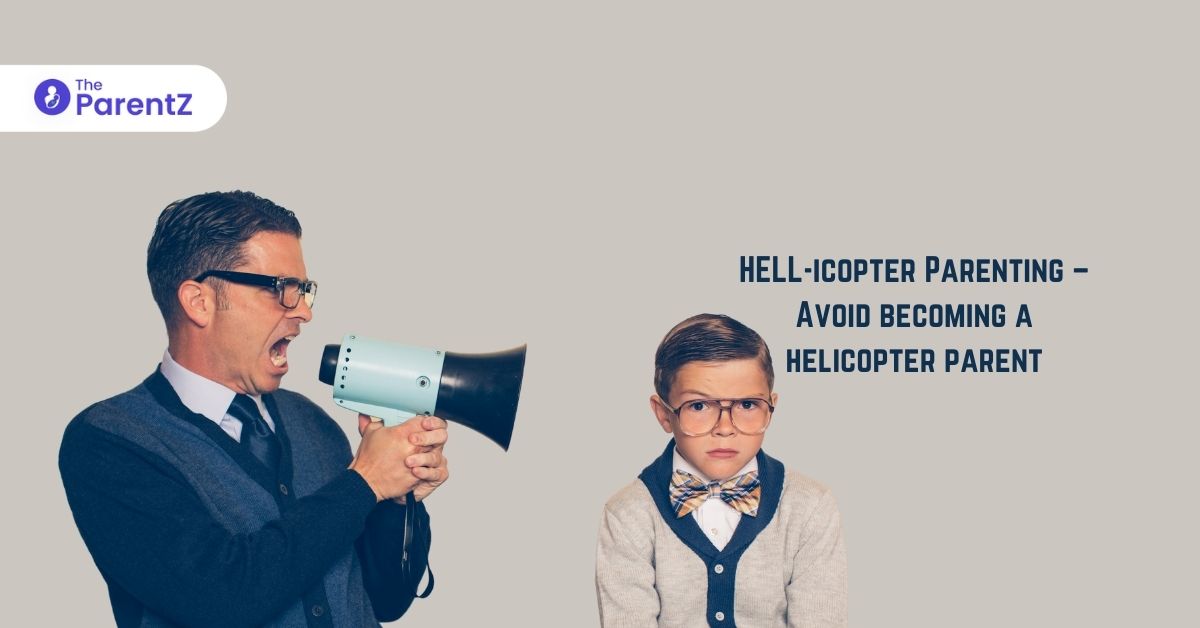Parenting is a Herculean task and often it is difficult to decide how much is too much.
*Vidya, mother of a 6 year old has enrolled her son Ved in secular tuition classes, karate as well as art classes. After he is done with school, he attends these bi-weekly classes that will apparently make him an ‘all-rounder. During summer holidays, Vidya has planned to engage Ved in phonics and swimming classes. “It’s not about pressure. It’s about exposure, Vidya asserts. He has to be a part of a competitive world, so all these activities will help him strengthen his personality.”
Let’s accept Vidya’s point of view as a concerned parent. But some mothers (and even fathers) tend to go overboard. Such over the top concern means that you’re obsessed with your child development.
Modern-day parents in their ambition to become ‘good-parents’ don’t end up giving space to children. No wonder a phenomenon called ‘Helicopter Parenting’ has taken the urban society by storm. Interestingly, this term first appeared way back in 1969 in the bestselling book Between Parent and Teenager written by Dr. Haim Ginott. The book mentions a teen who said, “Mother hovers over me like a helicopter”. This term became so popular that it gained an entry in the dictionary in 2011.
Psychologists and Neuro-Science experts through various studies in the field of child development have talked about the perils of excessive levels of parental involvement and how asserting control and constant interference can emotionally stipulate your child.
Who is a helicopter parent?
A helicopter parent is someone who gives his child ‘zero space, is over-involved in their school life, providing (too much) assistance for homework and even selecting the child’s friends or picking up activities for them stunting their streak for independence and self-reliance.
Children who are pressured by their parents tend to exhibit psycho-somatic symptoms like headaches and stomach aches. They also experience negative emotions like anxiety, anger, indecisiveness, rebelliousness and hostility. Over-parenting can make the confidence levels of a child nose dive and hamper their self-esteem. Too much hovering over the personal space of children can give cripple important life skills emotional mechanism like coping techniques such as decision making and the ability handle failure or face rejection and dealing with the pressures life will eventually throw at them. It is important that we as parents allow them some kind of freedom of course with supervision.
Read on to know how you can still guard your children without hampering their ability to learn important life skills?
- Unconditional Love: This is the strongest form of Love. Tell kids you love them no matter what. Teach them to handle failure and shower them with and positive-self regard.
- Listen to them: Ask them what would they like to learn, what interests them.
- Be observant: Watch out for emotions like anger and hostility. This might a sign that you’re pressuring them too much.
- Trade and tread: While it’s important to watch which path your loving child is treading, it might be wise to tread certain rules. Give your kids opportunities to experience manageable amounts of risks and responsibilities. For eg. Going to school on bi-cycle may be dangerous due to erratic traffic but they could ride to a near-by store in a relatively safe road to fetch milk or bread? This can give them a lot of confidence.






Be the first one to comment on this story.